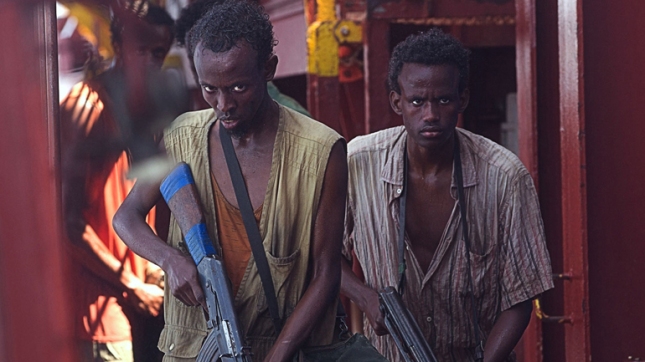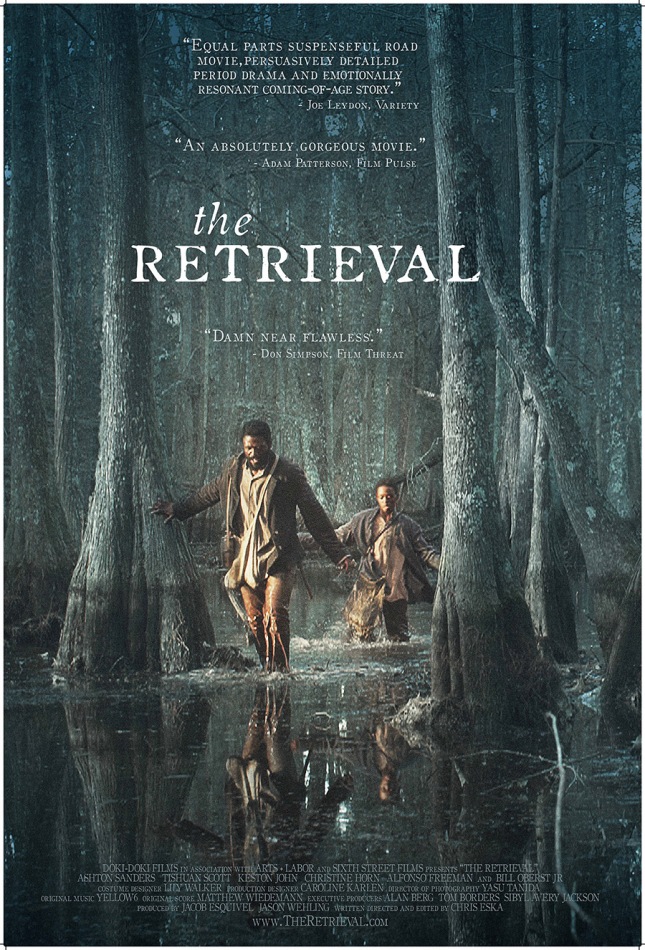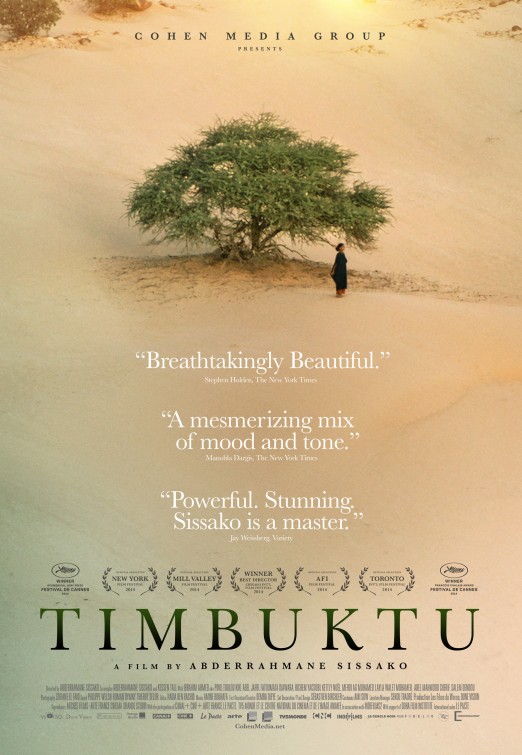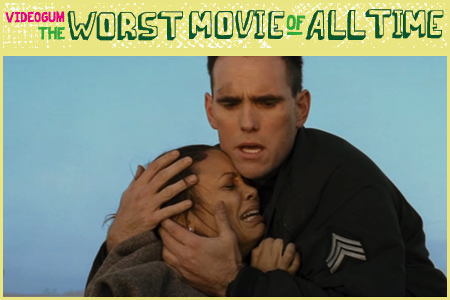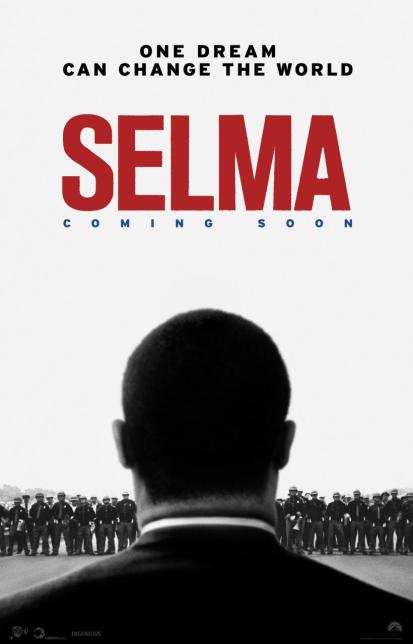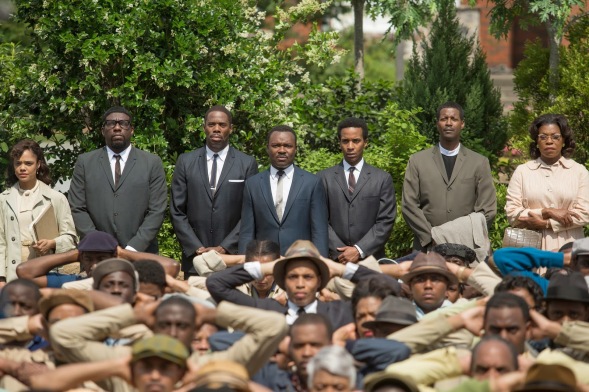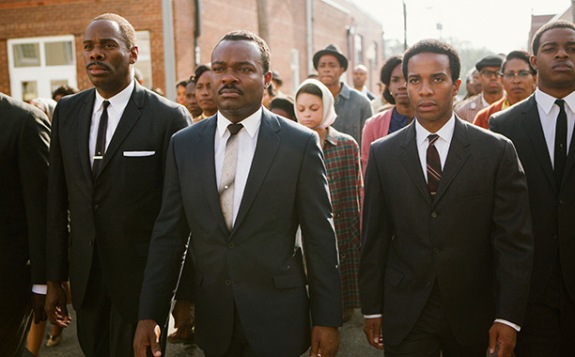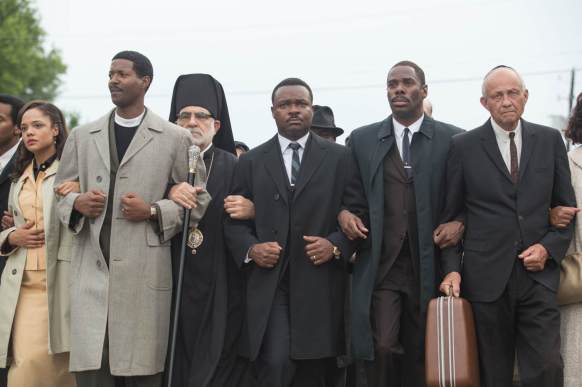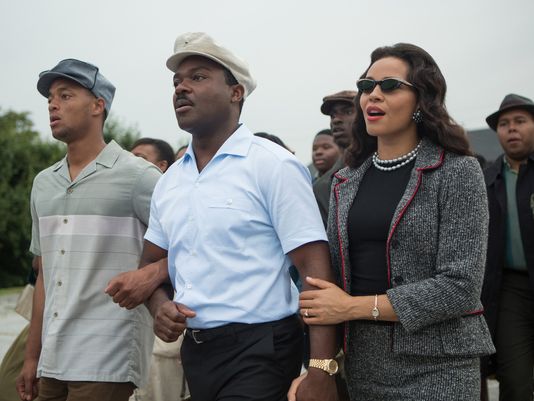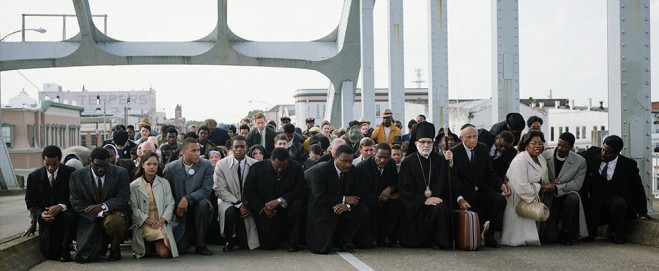Hattie McDaniel, the first African American to win an Academy Award in 1939 (12th Ceremony) for Gone with the Wind.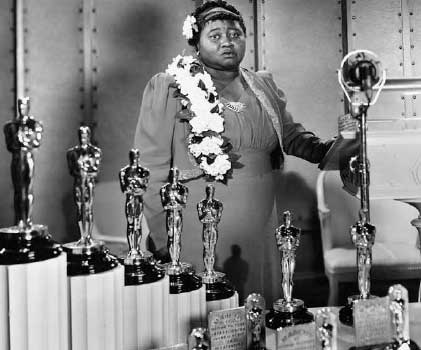
George Lucas (a person who’s Star Wars didn’t win Best Picture in 1977) said that the Academy Awards are purely political. That artistic merit is not part of the equation in selecting nominees or winners. Just studios vying for their film to be recognized and lobbying hard to do so. There is quite the furor over this being the first time in a while that African American actors nor directors have been nominated in any of the major categories. (Lucas is a big supporter of African Americans in films, see his produced Red Tails) Selma was nominated for Best Picture (I find this nomination very deserving, despite the film not being perfect) and Best Song (which I would want to win, except for ‘Everything is Awesome’ from The Lego Movie is just too damn much fun). Last year was a high water mark for black people in film. At least in terms of recognition with a gold statuette. 12 Years a Slave won going away. And it wasn’t an easy year by any stretch. All of the nominated films were terrific and only Gravity I felt had a chance to dethrone the eventual winner. Everyone can feel great about this film winning. I think it defies Lucas’s pronouncement. I think here artistic merit matches the recognition. A black (British) director and actor were nominated, a black woman (British) won for Best Supporting Actress. If anything British people dominate our awards. They tend to be white. When they’re not they benefit from a society without as harsh a past towards people of African descent and from a culture with great acting traditions.
The most important nomination last year was that of Barkhad Abdi, a Somali-born Minnesota transplant. He has two films set for release in 2015. That is a huge success for Africans in film. So while I understand people are dismayed at the fact there are absolutely none this year, know that just because they weren’t nominated it doesn’t lessen what they did. Ava DuVernay made an excellent film, she is a top notch director. David Oyelowo will be getting interesting roles in all sorts of movies from here on out. They already won. Next year, depending on the quality of the competition expect African Americans or Brits to regain nominations. This year was an excellent year in film. I saw one film that was nearly entirely African-American, I liked it more than Selma, yet no one talks about it. The Retrieval was amazing. It is on Netflix. Go and watch it ASAP. It was made by a white director, but had amazing performances by Tishuan Scott and Ashton Sanders. I hope they end up in larger films. But even if they don’t it doesn’t lessen the artistic impact of their work. So circling back, in this instance George Lucas is right. It’s political. The Retrieval was a small budget film made by a young director that didn’t have the heft of the subject of Selma, or the other nominees. The Retrieval deserves recognition too.
Spike Lee (great filmmaker and obnoxious human being) made an excellent point (and in the process pumped up his own ego). In 1989 Driving Miss Daisy won Best Picture, featuring a great performance from Morgan Freeman. However, Lee’s Do The Right Thing was not even nominated. I think most people agree in hindsight that Do The Right Thing was the best and most important film of 1989. Driving Miss Daisy isn’t taught in film schools, Do The Right Thing is on every film class curriculum. That film didn’t need a gold statue to become meaningful, or its director to go on to make great films and be at the forefront of African American filmmaking. Despite that there’s no hiding that the Academy hasn’t been friendly always to African Americans in film. I just don’t think because there aren’t any nominees for 2014 impedes the progress made in 2013. I also don’t think in the big picture that it matters. If you want to find great African American films and performances they’re out there. You just might have to research and look a bit harder. All the furor does ignore great films that are nominated in perceived lesser categories that aren’t ‘white’. The documentary Virunga which I reviewed on the blog got a deserved nomination. And also Best Foreign Film nominee Timbuktu from the great Mauritanian filmmaker Abderrahmane Sissako.
Stepping aside from the issue presented above, it’s even easier to see when you go back and look at the films that won Best Picture over the years and realize that the winner is political. Or that the obvious better film was not selected. Or even when nothing nefarious occurs, just that there are too many good films in a given year and choosing the ‘Best’ is a pointless endeavor. Many foreign films in the early years are clearly better but aren’t included as Best Picture candidates. Renoir’s Grand Illusion lost in ’38. ’39 was an absolute glut of amazing films, Wizard of Oz, Stagecoach, and Mr. Smith Goes to Washington all lost. CITIZEN KANE lost in 1941! So did The Maltese Falcon. Double Indemnity was looked over in ’44. 1950 saw Sunset Boulevard go unrecognized. ’64 came and Dr. Strangelove did not win. The Graduate lost in ’67. 1974 had Chinatown and The Conversation, a year as dominant as 1939. Taxi Driver lost to Rocky in ’77. Apocalypse Now didn’t win in 1979 and Raging Bull in 1980. Goodfellas was ignored in 1990. Pulp Fiction and The Shawshank Redemption were passed over for Forrest Gump in 1994. Fargo missed out in 1996. SAVING PRIVATE RYAN lost in 1998! And in 2005 every single film that was made was better than Crash, yet that disaster won. And these are just films that were nominated but didn’t win, not to mention all the films that were too small to get seen by the right people to even earn nominations. Despite all this I love the awards. I love them because it does bring films to my attention. I love them for the controversy they can create and the discussions that enter the culture about them and the films. I like shiny things with gold.
